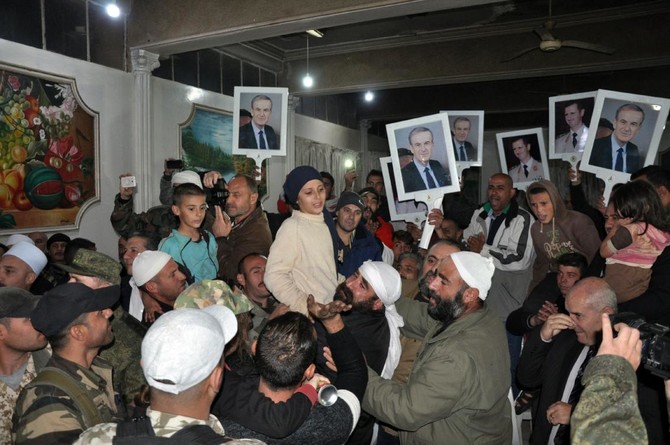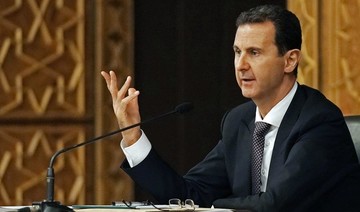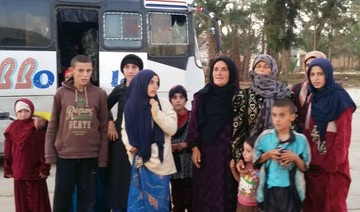BEIRUT: Syria’s Druze minority, whose men are being called up for military service by Damascus, is struggling to insulate itself from the conflict that has engulfed the country since 2011.
Here is a summary of the community’s profile, its role in Syria’s conflict and the attacks it has faced.
The Druze community accounted for around three percent of Syria’s pre-war population of 23 million.
They are located mainly in the southern province of Sweida with smaller pockets around Damascus and in the northwest, although some have fled militant-held parts of the latter area.
Druze are monotheistic and considered Muslim, but the sect is otherwise highly secretive, includes mystical elements such as reincarnation, and does not allow new converts.
Some 200,000 Druze are located in neighboring Lebanon and over 100,000 are in Israel, while 18,000 live in the Israeli-occupied Golan.
Syria’s Druze have been split by the uprising that erupted in 2011 against President Bashar Assad, who had long portrayed himself as a protector of the country’s minorities.
Druze should not be seen “as being neutral in this war — it’s more multifaceted and the Druze are not a monolithic bloc,” said Tobias Lang, an analyst focused on Druze populations in the Middle East.
One of the first soldiers to defect from Syria’s army in protest at its handling of demonstrations was Druze officer Khaldun Zeineddine, who later died in clashes against regime forces.
Others remained firmly loyal, like General Issam Zahreddine, one of the highest-ranking Druze army officers who died last year in a mine blast after battling the Daesh group in Syria’s east.
Druze leaders have often tried to maintain a relationship with the regime to keep their areas autonomous and spare them from government attacks.
One symbol of that complex relationship was Wahid Al-Balous, a Druze religious authority who pushed for the sect’s soldiers to be deployed near their hometowns, rather than in other provinces.
Balous, who died in a car bomb attack in Sweida in 2015, spoke out against both militants and Assad.
Syria’s Druze have protected their heartland in Sweida with their own forces.
The most powerful has been the Sheikhs of Dignity, which was headed by Balous and included fighters and other religious figures.
Sheikhs of Dignity has fought fierce battles against the Daesh group and Al-Qaeda’s Syrian affiliate.
Other militias have been closely linked to the regime, including the Dareh Al-Watan (Shield of the Nation), a Druze force founded in April 2015 with 2,000 fighters.
Such groups appear to have protected Sweida’s sons from compulsory military service, with authorities turning a blind eye so long as young men fight in units not opposed to the regime.
But with the regime hungry for fresh conscripts, that deal appears to be coming apart at the seams and Assad has now called on young Druze men to serve.
His appeal came after Damascus announced the release this month of Druze women and children who had been kidnapped during a July attack by Daesh.
That onslaught by the militants left more than 260 people dead, mostly civilians. It was the worst attack against the minority so far but not the first.
A car bomb in 2012 ripped through Damascus’ Jaramana suburb, which is mostly Druze and Christian.
In 2013 and 2014, fierce fighting between Syrian rebels and pro-regime Druze forces rocked Sweida province and Druze areas closer to Damascus.
Daesh began attacking Sweida province in 2015, first targeting Khalkhalah military airport.
The same year, 20 Druze Syrians were killed in a shoot-out with Al-Qaeda militants in the village of Qalb Lawzah in northwestern Idlib province.
Druze residents of Qalb Lawzah had come out against the regime a year into Syria’s uprising.
In 2016, Daesh beheaded four laborers in an area it controlled outside Damascus, accusing them of being Druze.
And in 2017, a car bomb killed nine people in Hader, a regime-held village in the southwestern province of Quneitra mostly populated by Druze.



























